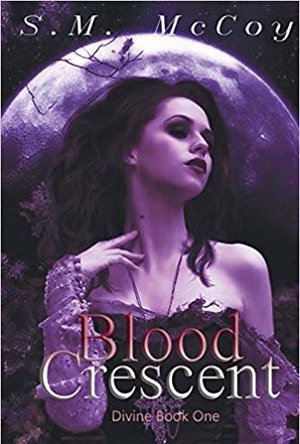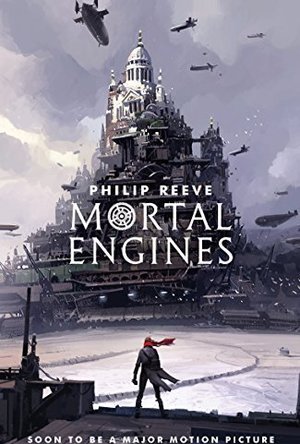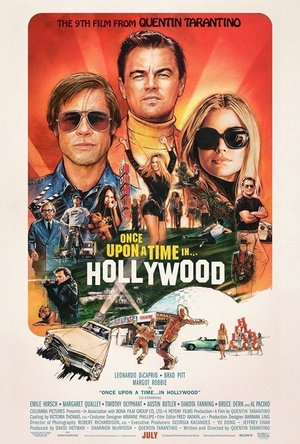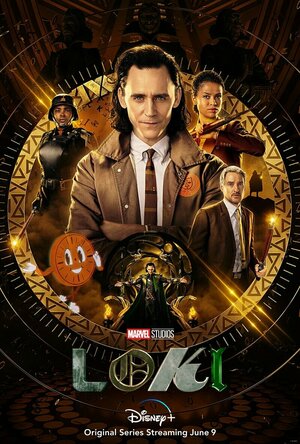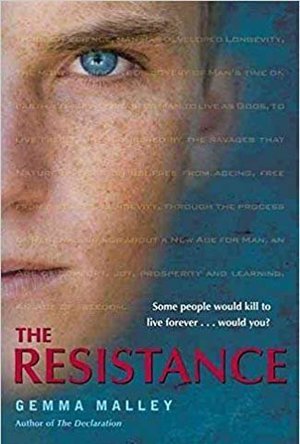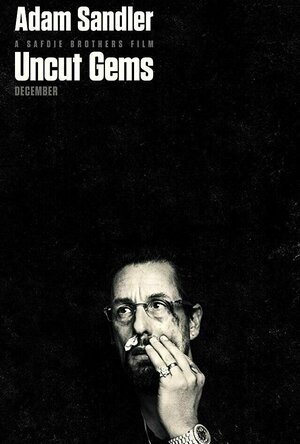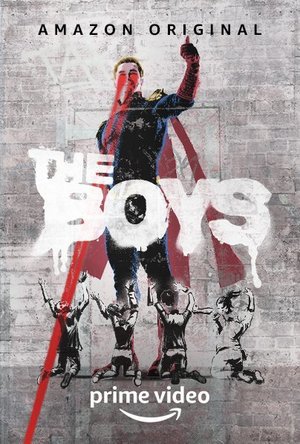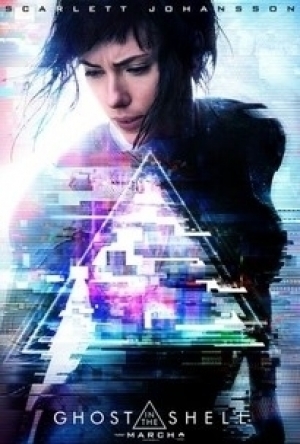Search
Sassy Brit (97 KP) rated Blood Crescent in Books
Jun 5, 2019
In this magical, and quite ambitious, story Stevie McCoy delves into the mystical world of
Blood Crescent where main character realises her missing mother may still be alive and her own life is not what she thought it was. Big time! What they wanted from her mother, they now want from her. But who are ‘they’?
To begin with Blood Crescent has a surreal, hazy, yet mystical feel to it, as the mysterious Crystal slowly comes to grips with what is happening to her forcing her to embark on a fantastical and multi-layered journey of self-discovery and adventure.
As the story unfolded, I was transported into another realm where I met some amazing characters. Angel Aishlin with her witchy ways, and the (adorable) anti-hero Victor are just two characters who leapt right out of the pages and into my heart! Not only that, but I felt that this is ventured into the vampire world with a unique slant. You’ve heard of people being called ’emotional vampires’ right? There the sort of people who drain your energy by just being in the same room as them, because they’re for some reason, negative or miserable. Well this book takes that idea and runs with it. Like energy draining vampires who can suck out any goodness in your aura, just because they can. But of course, in this world it’s not that simple. And for good reason, too!
Overall I have the feeling this is the start of a vast universe, with complex rules and therefore has the capacity to branch off in so many directions, this could the first of a long-running series, and would make great viewing on the box. In fact, I watched these characters play out their roles in my head as if it were already on the TV! There’s an intense, dark atmosphere to this story where the surreal meets a reality not unlike our own… if we are to believe there’s more to life than what we can see. And why shouldn’t there be?
A rich tapestry of characters in a world where there is so much more to be discovered. I’m looking forward to continuing this adventure!
Blood Crescent where main character realises her missing mother may still be alive and her own life is not what she thought it was. Big time! What they wanted from her mother, they now want from her. But who are ‘they’?
To begin with Blood Crescent has a surreal, hazy, yet mystical feel to it, as the mysterious Crystal slowly comes to grips with what is happening to her forcing her to embark on a fantastical and multi-layered journey of self-discovery and adventure.
As the story unfolded, I was transported into another realm where I met some amazing characters. Angel Aishlin with her witchy ways, and the (adorable) anti-hero Victor are just two characters who leapt right out of the pages and into my heart! Not only that, but I felt that this is ventured into the vampire world with a unique slant. You’ve heard of people being called ’emotional vampires’ right? There the sort of people who drain your energy by just being in the same room as them, because they’re for some reason, negative or miserable. Well this book takes that idea and runs with it. Like energy draining vampires who can suck out any goodness in your aura, just because they can. But of course, in this world it’s not that simple. And for good reason, too!
Overall I have the feeling this is the start of a vast universe, with complex rules and therefore has the capacity to branch off in so many directions, this could the first of a long-running series, and would make great viewing on the box. In fact, I watched these characters play out their roles in my head as if it were already on the TV! There’s an intense, dark atmosphere to this story where the surreal meets a reality not unlike our own… if we are to believe there’s more to life than what we can see. And why shouldn’t there be?
A rich tapestry of characters in a world where there is so much more to be discovered. I’m looking forward to continuing this adventure!
Goddess in the Stacks (553 KP) rated Mortal Engines (The Hungry City Chronicles, #1) in Books
Dec 25, 2018
Through this entire book, I kept thinking "this feels like Valerian and the City of a Thousand Planets." It's a completely different setting, and a different plot, but it had the same atmosphere. Rollicking action, fantastical premise, crazy setting, huge machines with entire worlds within them. I loved Valerian - it may not have been a critically great movie, and I don't think the leads had much chemistry, but the movie was just FUN. And that's how Mortal Engines is, too.
It's a crazy world, where cities have become mobile - think Howl's Moving Castle - and they chase each other across a barren world, devouring each other for resources in a social order they call Municipal Darwinism. Some cities, like London, are huge, with six main levels, not really counting the Gut, or the center of the machinery. Other towns are small, one or two levels crawling along trying to avoid the notice of the larger, faster cities. The peoples of the Traction Cities think people who live in statics (stationary cities, or, horror of horrors, right on the ground!) or people who are part of the Anti-Traction League, are crazy barbarians. And then there are the airship captains and crews, based out of the one floating city.
It is a crazy steampunk world, and Tom Natsworthy stumbles into a conspiracy plot by being in the wrong place at the wrong time. But as he travels with Hester across the wasteland, trying to survive their pursuers and avert catastrophe, he learns more about her, and more about how the world actually works.
I absolutely adore the last two sentences of the book, and I'm going to post those here because they aren't terribly spoilery. And they're fantastic.
"You aren't a hero, and I'm not beautiful, and we probably won't live happily ever after," she said. "But we're alive, and together, and we're going to be all right."
This book is the first of a quartet, and Reeve also wrote a prequel trilogy, so there's actually three books before AND after this book. I'll probably check my library for them, because I REALLY enjoyed this book.
You can find all my reviews at http://goddessinthestacks.com
It's a crazy world, where cities have become mobile - think Howl's Moving Castle - and they chase each other across a barren world, devouring each other for resources in a social order they call Municipal Darwinism. Some cities, like London, are huge, with six main levels, not really counting the Gut, or the center of the machinery. Other towns are small, one or two levels crawling along trying to avoid the notice of the larger, faster cities. The peoples of the Traction Cities think people who live in statics (stationary cities, or, horror of horrors, right on the ground!) or people who are part of the Anti-Traction League, are crazy barbarians. And then there are the airship captains and crews, based out of the one floating city.
It is a crazy steampunk world, and Tom Natsworthy stumbles into a conspiracy plot by being in the wrong place at the wrong time. But as he travels with Hester across the wasteland, trying to survive their pursuers and avert catastrophe, he learns more about her, and more about how the world actually works.
I absolutely adore the last two sentences of the book, and I'm going to post those here because they aren't terribly spoilery. And they're fantastic.
"You aren't a hero, and I'm not beautiful, and we probably won't live happily ever after," she said. "But we're alive, and together, and we're going to be all right."
This book is the first of a quartet, and Reeve also wrote a prequel trilogy, so there's actually three books before AND after this book. I'll probably check my library for them, because I REALLY enjoyed this book.
You can find all my reviews at http://goddessinthestacks.com
Neon's Nerd Nexus (360 KP) rated Once Upon a Time in Hollywood (2019) in Movies
Aug 15, 2019
As real as a donut
once upon a timeinhollywood is slow paced, tight methodical, uplifting & intricately woven look into the life of a hollywood star in the late 60s. I have to say im not overly a big Tarantino fan (with Inglorious bastards & the hateful eight being my favourites of his) so I wasnt really that excited about seeing this but once I stopped being on edge waiting for something bad to happen & finally sat back letting the film pull me in I knew this wasnt the usual Tarantino movie & I found that strangely compelling. While slow 90% of the run time the film never drags or ever stops being interesting & fascinating. Characters just drip cool are all likeable well fleshed out & distinguishable with every performance absolutely killing it even people that arnt in it much. It just all feels very human, relatable, down to earth & real. Sets are crafted with such perfection & filled with so much painstaking detail that you would swear the film was actually shot in the 60s creating an atmosphere & believability like no other. Accompany that with a smooth soundtrack you have a movie that just pops with style constantly. While everyone does a fantastic job its brad pitt that owns the film, his character is so deep, inspirational & the true hero of the film. Overall I saw this film as a more chill ed out & about how every day life for us all most of the time is way more exciting, thrilling, full of drama & strange events day to day making our lives just as exciting & as watchable as going to the movies & if we all just stopped worrying/stressing for just a second about technology, love, being successful etc life would fall into place, be stress free, we would be healthier & happier. Masterfully filmed, inteligent, mature & well executed this is not only a true love letter to the art of film making but a tribute to movies & how inspiring they can be in general. So sit back enter the decade & relax it may all seem very anti violence at first but the violence does come with time & when it finally hits its shocking & nasty but it feels earned & perfectly timed.
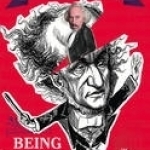
Being Wagner: The Triumph of the Will
Book
Simon Callow plunges headlong into Wagner's world to discover what it was like to be Wagner, and to...
LeftSideCut (3776 KP) rated Loki - Season 1 in TV
Jul 15, 2021
Contains spoilers, click to show
As another chapter within the MCU, Loki is a triumph. It manages to be a driving vehicle for Loki himself, boasting fantastic special effects, fun action scenes, that signature blend of drama and comedy. But beyond that, it's a wonderful character piece. Tom Hiddleston has been wonderfully cast as the titular anti-hero from the moment he first appeared in Thor. Since then, Loki has gone through a whole heap of double crossing, dying (multiple times), heroics, villainy, and everything in between. This series finds him a purpose and a place, and that place is Sylvie (Sophia Di Martino). Her role as a Loki variant makes their relationship both narcissistic and weirdly kind of sweet. Being the God of Mischief means that Loki is neither trusting, or trustworthy, but with Sylvie, all of his defences drop, and he's vulnerable. It's very well realised, and the chemistry between the two leads elevates the show tremendously. Owen Wilson is great as well, as is the the supporting cast, especially Wunmi Mosaku and Gugu Mbatha-Raw.
As a deep dive into comic lore, Loki really excels. The TVA is quite a stretch as it is, but this series is brimming with deep cuts. Alioth, Miss Minutes, Throg (!), The mother-fucking Thanoscopter (officially MCU canon, fight me) and of course, the jump off point for the multiverse. The Loki variants we see in episode 5 (including a show stealing turn from Richard E. Grant) combined with the introduction of Alioth makes for one of the most entertaining episodes of anything I've ever watched. Throw in the various teases for Kang the Conqueror and it's a comic fans dream.
The series finale is wonderful. The appearance of Immortus/He Who Remains, and the very well done set up for Kang's inevitable arrival is perfect, and I can't wait to see more of Jonathan Majors going forward.
Overall, Loki really steps off the beaten path, even more so than Wandavision. It's full of fantastic character moments, great writing, and ultimately delivers another fantastic entry into this new phase for Marvel Studios, and as it stands, is my personal favourite of the Disney+ shows so far.
As a deep dive into comic lore, Loki really excels. The TVA is quite a stretch as it is, but this series is brimming with deep cuts. Alioth, Miss Minutes, Throg (!), The mother-fucking Thanoscopter (officially MCU canon, fight me) and of course, the jump off point for the multiverse. The Loki variants we see in episode 5 (including a show stealing turn from Richard E. Grant) combined with the introduction of Alioth makes for one of the most entertaining episodes of anything I've ever watched. Throw in the various teases for Kang the Conqueror and it's a comic fans dream.
The series finale is wonderful. The appearance of Immortus/He Who Remains, and the very well done set up for Kang's inevitable arrival is perfect, and I can't wait to see more of Jonathan Majors going forward.
Overall, Loki really steps off the beaten path, even more so than Wandavision. It's full of fantastic character moments, great writing, and ultimately delivers another fantastic entry into this new phase for Marvel Studios, and as it stands, is my personal favourite of the Disney+ shows so far.
Eleanor Luhar (47 KP) rated The Returners in Books
Jun 24, 2019
I have a vague recollection of reading this some time in the past which is kind of ironic considering the topic of the book itself. While I felt a repeated deja vu throughout this book, I can't seem to remember when I actually would have read it before. I also couldn't remember much of the main plot, which is pretty weird.
Anyway, the review.
It's a good book. honestly, the opening paragraph of this review sums the book up quite well - it's good, but not overly memorable. When you read it, you often think, "this is good" or "cool" or whatever, but a few months later you'll forget all about it. At least, that's how I felt.
Gemma Malley is an author I used to love when I was in my preteens, and I'm not sure if that's why her books feel very adolescent to me, or if it's because they actually are. Basically, I feel too old for them now. The protagonists are usually "cool" mid-teens, who the reader is supposed to look up to in some way. But I'm older than most characters and actually find their attitudes a bit pathetic and petty.
The story was good but I felt like there were a few loopholes, honestly. The idea of the "Returners" is interesting but not developed enough - who actually 'controls' them? Where did they come from? What is their real purpose? I felt like their purpose was a bit wishy-washy. Douglas's refusal to change his attitude because it "isn't their role" or whatever just sounded a bit... lame. Like a cop-out, I guess. I really would've liked to know more about the Returners and why they actually exist.
It's only short and this may contribute to it feeling quite young, but it is well written and really enjoyable to read. Will is almost an anti-hero, and as the reader I both loved and hated him. His thoughts and attitudes were quite sporadic and it was sometimes hard to keep up, but that may have been the intention. I did like how we learned things at the same time as Will - we followed him through his own story. It was also really interesting how Will decided to handle the life he'd been forced into.
4 stars.
Anyway, the review.
It's a good book. honestly, the opening paragraph of this review sums the book up quite well - it's good, but not overly memorable. When you read it, you often think, "this is good" or "cool" or whatever, but a few months later you'll forget all about it. At least, that's how I felt.
Gemma Malley is an author I used to love when I was in my preteens, and I'm not sure if that's why her books feel very adolescent to me, or if it's because they actually are. Basically, I feel too old for them now. The protagonists are usually "cool" mid-teens, who the reader is supposed to look up to in some way. But I'm older than most characters and actually find their attitudes a bit pathetic and petty.
The story was good but I felt like there were a few loopholes, honestly. The idea of the "Returners" is interesting but not developed enough - who actually 'controls' them? Where did they come from? What is their real purpose? I felt like their purpose was a bit wishy-washy. Douglas's refusal to change his attitude because it "isn't their role" or whatever just sounded a bit... lame. Like a cop-out, I guess. I really would've liked to know more about the Returners and why they actually exist.
It's only short and this may contribute to it feeling quite young, but it is well written and really enjoyable to read. Will is almost an anti-hero, and as the reader I both loved and hated him. His thoughts and attitudes were quite sporadic and it was sometimes hard to keep up, but that may have been the intention. I did like how we learned things at the same time as Will - we followed him through his own story. It was also really interesting how Will decided to handle the life he'd been forced into.
4 stars.
colin... (64 KP) rated Uncut Gems (2019) in Movies
Sep 30, 2020
The fact that the Safdie's landed Christmas is still absolutely wild to me. There were so many people in our theater that looked like they just DIDN'T belong there.
First things first, I'd like to get my negatives out of the way really quickly. My issue with this film, and why I view it as lesser than Good Time is one simple reason, and that is heart. I felt every moment of Good Time pulsating through my bones and truly felt for the ride that Connie went through. I saw the pain and remorse and emotion in his eyes grow with every passing moment. In Uncut Gems, I don't get the same gravitas and power of the emotion that is provided in Good Time. I never truly saw any remorse in Howard, nor that he really cared about anything else but himself, so when the emotional beats come when we are supposed to feel bad for him, I have a rather hard time doing that. He's not necessarily an unlikable guy, he just doesn't have that anti-hero vibe that Connie supplied. That is the main facet that significantly detracted from my appreciation for this film.
That being said, everything else is stellar. The grittiness of the cinematography works so well with the world we are being immersed in, with even the long shots being very unsteady and dirty looking in the way that the characters are framed. As everyone else is saying, Sandler puts on a magnificent performance (although if he gets nominated and Robert Pattinson didn't for Good Time, I'll be pretty frustrated) that reminds the public of why he demands the level of respect her does. However, the standout here for me is Julia Fox, who makes this film funnier than it has any right to be. She really carries herself in a way that I felt like I had met her before, or at least someone exactly like her. Going off of that, the humor really really works, so much so that I could argue that this is a black comedy instead of the crime thriller it is listed as. Everything from the situational comedy to the witty lines of dialogue just hits you in the chest.
Overall, a wonderful film that I hope will push the Safdie's into the mainstream like Hereditary did to Aster.
First things first, I'd like to get my negatives out of the way really quickly. My issue with this film, and why I view it as lesser than Good Time is one simple reason, and that is heart. I felt every moment of Good Time pulsating through my bones and truly felt for the ride that Connie went through. I saw the pain and remorse and emotion in his eyes grow with every passing moment. In Uncut Gems, I don't get the same gravitas and power of the emotion that is provided in Good Time. I never truly saw any remorse in Howard, nor that he really cared about anything else but himself, so when the emotional beats come when we are supposed to feel bad for him, I have a rather hard time doing that. He's not necessarily an unlikable guy, he just doesn't have that anti-hero vibe that Connie supplied. That is the main facet that significantly detracted from my appreciation for this film.
That being said, everything else is stellar. The grittiness of the cinematography works so well with the world we are being immersed in, with even the long shots being very unsteady and dirty looking in the way that the characters are framed. As everyone else is saying, Sandler puts on a magnificent performance (although if he gets nominated and Robert Pattinson didn't for Good Time, I'll be pretty frustrated) that reminds the public of why he demands the level of respect her does. However, the standout here for me is Julia Fox, who makes this film funnier than it has any right to be. She really carries herself in a way that I felt like I had met her before, or at least someone exactly like her. Going off of that, the humor really really works, so much so that I could argue that this is a black comedy instead of the crime thriller it is listed as. Everything from the situational comedy to the witty lines of dialogue just hits you in the chest.
Overall, a wonderful film that I hope will push the Safdie's into the mainstream like Hereditary did to Aster.
Kirk Bage (1775 KP) rated The Boys - Season 2 in TV
Jan 22, 2021
As I have already stated in my review of season one of The Boys, it is a show that I have found compelling to watch without actually liking or thinking it is necessarily very good. The premise was intriguing, and threw up some pretty interesting dramatic conflicts in the first season. But it was obvious from very early on that this show wanted to make the most of its 18 certificate and use gore, violence and shock tactics to really make fans of those things gasp.
In season two they have taken that key point of difference and turned the volume up to ten! All I remember from it, some three months now since I finished it, is blood, exploding and crushed heads, severed limbs, gross out deaths and lots more blood. Which, you know, turns some people on, but after the first ten times I got pretty sick of it – almost literally – and was just riding it out to the finish mostly.
Performance wise, there isn’t really a stand out, and the writing doesn’t really offer the opportunity (yet) for true emotional depth. Antony Starr, as the deplorably egotistical maniac “hero” Homelander, is the one you love to hate though! Rarely have I found myself wanting a character to get his dues so much! He is utterly loathsome and repulsive, so much credit for that creation. Depending on where they take things in season 3 and beyond, he could emerge as one of the iconic characters of this era of streaming TV.
In terms of story progression, a decent job has been made by introducing Aya Cash as Stormfront, a depraved love interest for Homelander with a big secret and a great plot device. Most of the events have revolved around her introduction, development, backstory reveal and consequences of that on the show’s main man. Meanwhile the storyline around Karl Urban as Billy Butcher becomes more and more forgettable and sometimes irrelevant.
That is the problem with this show really; it has set itself up as being Superheros that are actually assholes vs renegade anti-heros that want to stop them… but, it knows that as soon as that conflict is resolved and satisfied the show is over. So, they drag the story along with very minimal contact as yet between the two. Plenty of inner turmoil within the two groups, but no action as such against one another.
And that is why the build up to this season’s climax felt mostly anti-climactic. Although it did land a half decent cliff-hanger right at the end. I don’t know… I just feel as if it’s a show to let wash over you without that much value in analysing it. And that wash always makes me feel slightly grubbier than I was before. If redemption, conflict and resolution are on the cards they need to get a dose of it into season three, or I will probably lose interest fast.
Amazon Prime has a lot of shows a lot better than this one, but probably none that appeal as much to boys and men under 30. It has its place on the vast entertainment schedule, but personally I am craving more meaning and less of the puerile dependence on gore. However, if that is what its audience talk about, then its gonna increase not decrease. They have set their own bloody bar now and my fear is this is what the future of the show holds: more and more original ways to gross us out. I’d like to be proved wrong, but I don’t feel in a huge rush about it either way.
In season two they have taken that key point of difference and turned the volume up to ten! All I remember from it, some three months now since I finished it, is blood, exploding and crushed heads, severed limbs, gross out deaths and lots more blood. Which, you know, turns some people on, but after the first ten times I got pretty sick of it – almost literally – and was just riding it out to the finish mostly.
Performance wise, there isn’t really a stand out, and the writing doesn’t really offer the opportunity (yet) for true emotional depth. Antony Starr, as the deplorably egotistical maniac “hero” Homelander, is the one you love to hate though! Rarely have I found myself wanting a character to get his dues so much! He is utterly loathsome and repulsive, so much credit for that creation. Depending on where they take things in season 3 and beyond, he could emerge as one of the iconic characters of this era of streaming TV.
In terms of story progression, a decent job has been made by introducing Aya Cash as Stormfront, a depraved love interest for Homelander with a big secret and a great plot device. Most of the events have revolved around her introduction, development, backstory reveal and consequences of that on the show’s main man. Meanwhile the storyline around Karl Urban as Billy Butcher becomes more and more forgettable and sometimes irrelevant.
That is the problem with this show really; it has set itself up as being Superheros that are actually assholes vs renegade anti-heros that want to stop them… but, it knows that as soon as that conflict is resolved and satisfied the show is over. So, they drag the story along with very minimal contact as yet between the two. Plenty of inner turmoil within the two groups, but no action as such against one another.
And that is why the build up to this season’s climax felt mostly anti-climactic. Although it did land a half decent cliff-hanger right at the end. I don’t know… I just feel as if it’s a show to let wash over you without that much value in analysing it. And that wash always makes me feel slightly grubbier than I was before. If redemption, conflict and resolution are on the cards they need to get a dose of it into season three, or I will probably lose interest fast.
Amazon Prime has a lot of shows a lot better than this one, but probably none that appeal as much to boys and men under 30. It has its place on the vast entertainment schedule, but personally I am craving more meaning and less of the puerile dependence on gore. However, if that is what its audience talk about, then its gonna increase not decrease. They have set their own bloody bar now and my fear is this is what the future of the show holds: more and more original ways to gross us out. I’d like to be proved wrong, but I don’t feel in a huge rush about it either way.
There's plenty of letters and journals preserved regarding royalty, aristocrats and other rich and famous people but less about more ordinary people. OK, so most of ancestors would have been peasants/yeomen who would have been unlikely to be able to read, but every so often something does turn up which throws some light on our understanding of what we might consider to be more ordinary people. The Paston letters are one famous example and the story presented in the book is another discovery along the same sort of lines.
Our story begins in India, with William Jackson, who will be the father of our 'profligate son'. It is while in India that he meets his future wife and several other influential connections. A major incident here also has an impact on this William's future. The Profligate Son of the title is the son of this William Jackson, also called William Jackson, just to confuse the issue! Jackson senior had returned to England and was a reasonably wealthy man of the new middle classes. He had, however, made his fortune in trade and was keen for his only son to receive a good education and go into the law - one of the gentlemanly occupations at this time.
Unfortunately, William was not particularly interested in a good education, but far more interested in pursuing what he considered 'gentlemanly' pursuits - being idle and frivolous, drinking conspicuous amounts and consorting with women of easy virtue! In spite of the admonitions of his father and the pleadings of his affectionate mother, William continued into a downward spiral - resorting to forgery and deception to gain what it really seems he believes he was entitled to. The Georgian world, in some ways not dissimilar to modern days, was largely built upon trades-persons extending credit, which allowed William to get away with so much. We follow our anti-hero through various prisons and courts until he is finally transported to Australia. I find it most amazing that he never seems to repent of what he has done and really seems to believe that there has been a miscarriage of justice against him!
This story has been preserved through the writings of Mr Jackson, the father, and the letters between various family members which have been preserved for all this time. an interesting insight into the seamier side of Georgian life - and perhaps a lesson for people in these times who are too apt to live upon credit!
Our story begins in India, with William Jackson, who will be the father of our 'profligate son'. It is while in India that he meets his future wife and several other influential connections. A major incident here also has an impact on this William's future. The Profligate Son of the title is the son of this William Jackson, also called William Jackson, just to confuse the issue! Jackson senior had returned to England and was a reasonably wealthy man of the new middle classes. He had, however, made his fortune in trade and was keen for his only son to receive a good education and go into the law - one of the gentlemanly occupations at this time.
Unfortunately, William was not particularly interested in a good education, but far more interested in pursuing what he considered 'gentlemanly' pursuits - being idle and frivolous, drinking conspicuous amounts and consorting with women of easy virtue! In spite of the admonitions of his father and the pleadings of his affectionate mother, William continued into a downward spiral - resorting to forgery and deception to gain what it really seems he believes he was entitled to. The Georgian world, in some ways not dissimilar to modern days, was largely built upon trades-persons extending credit, which allowed William to get away with so much. We follow our anti-hero through various prisons and courts until he is finally transported to Australia. I find it most amazing that he never seems to repent of what he has done and really seems to believe that there has been a miscarriage of justice against him!
This story has been preserved through the writings of Mr Jackson, the father, and the letters between various family members which have been preserved for all this time. an interesting insight into the seamier side of Georgian life - and perhaps a lesson for people in these times who are too apt to live upon credit!
Bob Mann (459 KP) rated Ghost in the Shell (2017) in Movies
Sep 29, 2021
A robot you could take home to meet mother.
I was intrigued to watch the other day (purely for the interest in the technology employed of course!) a short Guardian video on the development of the world’s first fully functioning sex robot: a disturbing watch, requiring a fairly broad mind. Watching it on the same day as going to see Scarlett Johansson’s new film “Ghost in the Shell” though was a mistake, since the similarities between Johansson’s character (‘Major’) and the animatronic sex doll (‘Harmony’) were… erm… distracting.
Johansson is a stunning actress, with unquestionably a stunning figure that she loves to show off, but you would have to start questioning her film choices: since there is hardly a hair’s breadth between the emotionally reserved superhero depiction here and her recent roles in “Lucy” and “Under the Skin“. With her other ongoing “Avengers” superhero work as Natasha Romanoff, and nothing much else beyond that other than brief cameos (“Hail Caesar“, “Hitchcock“) and voice work, its all getting a bit ‘samey’: I’d like to see her get back to her more dramatic roles like “Lost in Translation” that really launched her career.
Anyhoo, back to this flick. Set in the dazzling fictional Japanese city of Niihama, Johansson plays a terrorist victim saved only by having her brain transplanted into an android by the Hanka corporation. In this time (40 years in the future) human ‘upgrades’ with cybernetic technology are commonplace, but Major is a ‘first of a kind’ experiment. Hanka are not pure humanitarians though, since they have turned Major into a lethal fighting weapon with powers of invisibility and lightning reactions. She works for a shadowy anti-terrorism unit called Section 9, led by the Japanese speaking Aramaki (Takeshi Kitano, “Battle Royale”).
The upside of having no human form is that if you get burned or blown up, the team of cyber-surgeons back at Hanka, led by Dr. Ouelet (Juliette Binoche), can rebuild her – – they “have the technology” to quote another bionic hero.
But all is not necessarily well in the idyll of anti-terrorist slashing and burning. Major suffers from recurring ‘glitches’ of memories from her past life: a life that she has no clear memories of. Her latest mission against a deformed and vindictive terrorist called Kuze (Michael Pitt) progressively resurfaces more of these memories, since Kuze clearly knows more about Major than she does.
“Ghost in the Shell” looks glorious, with the Hong Kong-like city being in the style of Blade Runner but with more holograms. (What exactly the holograms are supposed to be doing or advertising is rather unclear!). The cinematography and special effects deserve an Oscar nomination.
Given the film is based on an original Manga series, written and illustrated by Masamune Shirow and well known for its complexity, this Hollywood version has a surprisingly simple and linear story. As such it may disappoint the hoard of fans who adore the original materials.
Treating it as a standalone film, it should have an emotional depth beyond the superficial action, dealing as it does with loyalty and family ties. However, the scripting and editing is rather pedestrian making the whole thing a bit dull. Johansson and Pilou Asbæk, as her co-worker Batou, breathe what life they can into the material; but Binoche is less convincing as the Dr Frankenstein-style doctor. The best act in the piece though is Takeshi Kitano as the kick-ass OAP with attitude.
Where I had particular issues was in some of the detail of the action. ‘Invisibility’ is an attribute that needs to be metered out very carefully in the movies: Harry Potter just about got away with it; in “Die Another Day” it nearly killed the Bond franchise for good. Here, exactly how the androids can achieve invisibility is never explained and I disliked that intently. Similarly, the androids can clearly be physically damaged, yet Major seems to start each mission by throwing herself headfirst off the tallest skyscraper. Again, never explained.
Even though the premise, and the opening titles, brought back bad memories of that truly terrible Star Trek episode “Spock’s Brain”, this is a dark and thoughtful adaptation with great CGI effects but unfortunately its pedestrian pace means it is one that never truly breaks through into the upper echelons of Sci Fi greatness. Worth a watch though.
Johansson is a stunning actress, with unquestionably a stunning figure that she loves to show off, but you would have to start questioning her film choices: since there is hardly a hair’s breadth between the emotionally reserved superhero depiction here and her recent roles in “Lucy” and “Under the Skin“. With her other ongoing “Avengers” superhero work as Natasha Romanoff, and nothing much else beyond that other than brief cameos (“Hail Caesar“, “Hitchcock“) and voice work, its all getting a bit ‘samey’: I’d like to see her get back to her more dramatic roles like “Lost in Translation” that really launched her career.
Anyhoo, back to this flick. Set in the dazzling fictional Japanese city of Niihama, Johansson plays a terrorist victim saved only by having her brain transplanted into an android by the Hanka corporation. In this time (40 years in the future) human ‘upgrades’ with cybernetic technology are commonplace, but Major is a ‘first of a kind’ experiment. Hanka are not pure humanitarians though, since they have turned Major into a lethal fighting weapon with powers of invisibility and lightning reactions. She works for a shadowy anti-terrorism unit called Section 9, led by the Japanese speaking Aramaki (Takeshi Kitano, “Battle Royale”).
The upside of having no human form is that if you get burned or blown up, the team of cyber-surgeons back at Hanka, led by Dr. Ouelet (Juliette Binoche), can rebuild her – – they “have the technology” to quote another bionic hero.
But all is not necessarily well in the idyll of anti-terrorist slashing and burning. Major suffers from recurring ‘glitches’ of memories from her past life: a life that she has no clear memories of. Her latest mission against a deformed and vindictive terrorist called Kuze (Michael Pitt) progressively resurfaces more of these memories, since Kuze clearly knows more about Major than she does.
“Ghost in the Shell” looks glorious, with the Hong Kong-like city being in the style of Blade Runner but with more holograms. (What exactly the holograms are supposed to be doing or advertising is rather unclear!). The cinematography and special effects deserve an Oscar nomination.
Given the film is based on an original Manga series, written and illustrated by Masamune Shirow and well known for its complexity, this Hollywood version has a surprisingly simple and linear story. As such it may disappoint the hoard of fans who adore the original materials.
Treating it as a standalone film, it should have an emotional depth beyond the superficial action, dealing as it does with loyalty and family ties. However, the scripting and editing is rather pedestrian making the whole thing a bit dull. Johansson and Pilou Asbæk, as her co-worker Batou, breathe what life they can into the material; but Binoche is less convincing as the Dr Frankenstein-style doctor. The best act in the piece though is Takeshi Kitano as the kick-ass OAP with attitude.
Where I had particular issues was in some of the detail of the action. ‘Invisibility’ is an attribute that needs to be metered out very carefully in the movies: Harry Potter just about got away with it; in “Die Another Day” it nearly killed the Bond franchise for good. Here, exactly how the androids can achieve invisibility is never explained and I disliked that intently. Similarly, the androids can clearly be physically damaged, yet Major seems to start each mission by throwing herself headfirst off the tallest skyscraper. Again, never explained.
Even though the premise, and the opening titles, brought back bad memories of that truly terrible Star Trek episode “Spock’s Brain”, this is a dark and thoughtful adaptation with great CGI effects but unfortunately its pedestrian pace means it is one that never truly breaks through into the upper echelons of Sci Fi greatness. Worth a watch though.
